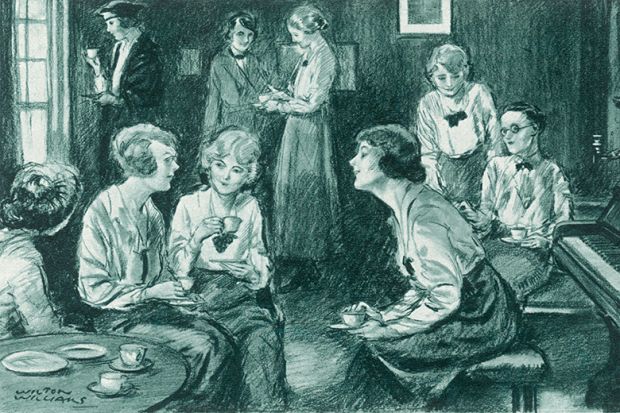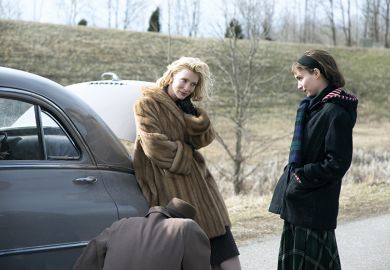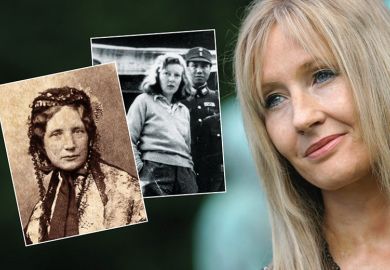In 1912, a group of young women left their homes for the curious, cloistered existence of students at Somerville College, Oxford. Here, they would be both part of and apart from the great old university. Unable to gain (retrospective) degrees until 1920, they nonetheless lived, studied and passed examinations like their male contemporaries. Mo Moulton’s rich and careful book gives us the group biography of a handful of these women, and a keen sense of the challenges and opportunities of the times they lived in. At the centre is the detective novelist and public thinker Dorothy L. Sayers: it was she who founded the “Mutual Admiration Society” of the book’s title, a group whose raison d’être – apart from the consumption of quantities of cocoa and marshmallows – was the critique and development of its members’ literary voices.
Three other Somervillians have equal prominence here: Muriel St Clare Byrne, a popular historian of the Renaissance; Charis Barnett (later Frankenburg), a social campaigner and activist on issues concerning women and children; and Dorothy Rowe, whose career as an English teacher was combined with her leadership of an innovative theatrical society in Bournemouth. Moulton follows them with sure-footed patience through two world wars and any number of marriages, love affairs, domestic entanglements, triumphs, discontents, illnesses and bereavements. In some ways, these women – Sayers excepted – are not especially remarkable; as Moulton disarmingly admits, “I suspect they would have been somewhat boring men”.
But one of the strengths of their story is in the sense of shared purpose that unites them across the decades of their friendships: they were not men, in fact, which means many obvious pathways for the highly educated were closed to them, and rewarding work and financial independence were by no means guaranteed even to those who had enjoyed the brightest success in the Oxford examination halls. Instead, each of them found her own way to turn this social disenfranchisement into a life’s purpose.
Moulton vividly shows us the importance of friendship and marginalisation as spurs to ambition: ultimately, though, the real subject of this book is gender, as both biological fact and social construction. Byrne’s unconventional romantic life is important here: she lived with a woman as a married couple, but her decision to take another lover prompted a re-evaluation of what partnership and commitment might mean. This is interesting as social history: Moulton offers a sensitive and knowledgeable recovery of lesbianism’s cultural “state of flux” in these years. But it also has a direct bearing on Sayers’ great detective novel, Gaudy Night (1935), whose chief plot machinations concern the bringing together of the sleuth Lord Peter Wimsey and Harriet Vane, a detective novelist. Theirs had to be a wholly equal partnership, a "marriage of two independent and equally irritable intelligences" in which neither has dominion over the other. And the union couldn't be put off any longer, because Sayers had already, with Byrne, collaborated on a stage play about its aftermath: Busman's Honeymoon.
As Moulton convincingly demonstrates, that iconic union of equals owes much to the enduring friendship of women who first met decades before as members of the Mutual Admiration Society. The book excavates the social and emotional context of the lives of four indomitable women with painstaking affection; it is as valuable as it is enjoyable.
Sophie Read is a senior lecturer in English at the University of Cambridge.
Mutual Admiration Society: How Dorothy L. Sayers and Her Oxford Circle Remade the World for Women
By Mo Moulton
Corsair, 384pp, £20.00
ISBN 9781472154439
Published 7 November 2019
Register to continue
Why register?
- Registration is free and only takes a moment
- Once registered, you can read 3 articles a month
- Sign up for our newsletter
Subscribe
Or subscribe for unlimited access to:
- Unlimited access to news, views, insights & reviews
- Digital editions
- Digital access to THE’s university and college rankings analysis
Already registered or a current subscriber?







